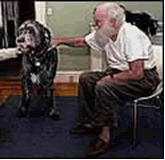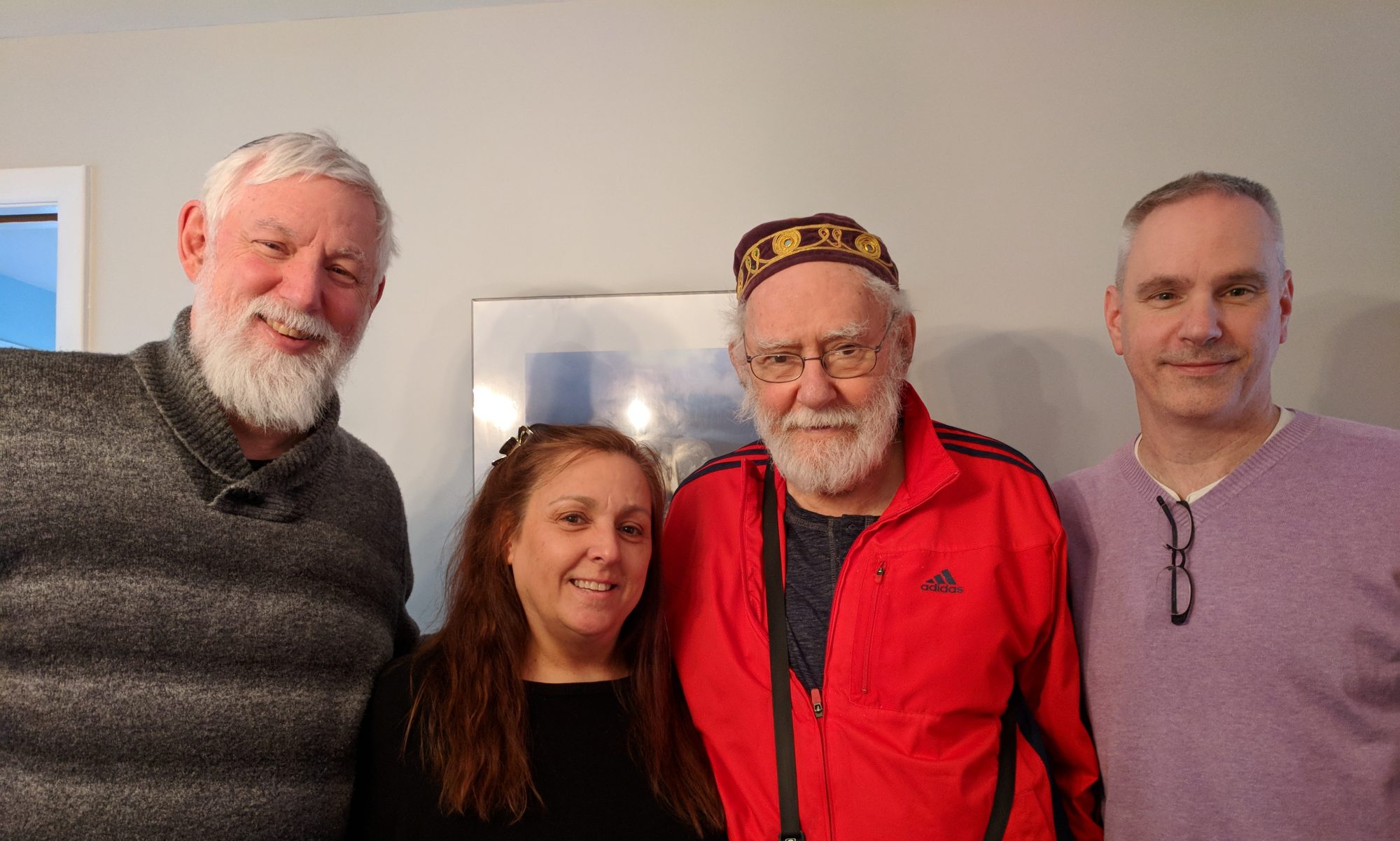Michigan Tech
After I returned from Chicago in the summer of 1944, I started my freshman year at Michigan Tech. This campus was located at the far eastern end of Houghton, 3 or 4 miles from my home in Hancock. I lived with my parents during this freshman year so for the first time I had to do some traveling to and from school. I would drive my dad’s car sometimes, or take the bus, or walk. In Michigan one could get a drivers license at 16 just by passing a written test. When I took the test the examiner sat me at a table with a copy of the answers judiciously placed on the table top.
I met a great bunch of guys at Michigan Tech, and some of us have stayed in touch over the years. This is especially true of Barney (Layton) Binon. He was a student in the geology department and now lives in Ohio. We keep in contact and he even came to Syracuse when Dolores and I got married. Mitch Siepak was another of the crowd and we keep in touch mostly by him sending out email selections and me getting upset with him for what I consider their grossly right-wing treatment of current topics. Johnny Jerys was another soul mate, but I remember him as being somewhat introverted. I have lost all contact with him. Bill McFarlan is the one other I remember, but again we have lost touch. However we found out that he died in 2007. I remember one time when we all piled into his car to take a trip to Detroit. This was the usual way to travel there since the train to Detroit took over 24 hours. It is about 600 miles from Hancock to Detroit. Well, his car was old and had become an oil burner. We had to stop at least every 100 miles to replenish the engine oil and so we were up and about all night doing that task.
During this first year at Michigan Tech I had a great time, both with the courses and the friends I made. Often this meant driving up to the Paradise Inn on the road to Calumet and drinking way too much. We would all pile into my dad’s car and spend an evening talking and drinking. I used to be able to drink three boilermakers and still drive everybody home. Being an engineering school all students were male except for one. She wasn’t excused from any of the courses, which was quite a thing at that time. We had machine shop courses and courses that involved a forge and pounding out welds and the like with hammer and anvil.
There were initiation activities that involved both the freshmen and the sophomores. Of course there was a greased pole surrounded by the sophomores in a tight cone around the pole and this was attacked by the freshmen. If the freshmen could climb the 12 foot pole and lower the flag then they would be free of further hazing. We freshmen didn’t succeed at that. We would be sent out on treasure hunts and one night we ended up at the schools golf course at about 2:00 a.m. All in all we got through the hazing period with no serious injuries.
There were also social fraternities on campus, but commuter students like me rarely got involved with them. However, I seem to remember that Mitch Siepak became a Sigma Rho. The academic year was divided into 3 twelve week terms, with one term in the fall and two more starting after the first of the year. The academic credit for each course was determined not only by the number of lecture hours but also by the expected preparation time. With this process you ended up with some thousands of hours when you graduated.
I was a pretty good student during my freshman year. I decided to join the ROTC program because I knew I would be drafted as soon as this year was over and I felt maybe having the ROTC program behind me would make my passage into military life somewhat smoother. I certainly didn’t have any anti-war thoughts or a distrust of the government.
I did well in this first year and really enjoyed the life. However, I turned 18 in March of 1945 and was required to register for the draft. The last term of my freshman year ended in mid June and I was drafted on June 25, 1945. This brought an end to the beginning years of my life and the changes now began to really mount up.
The Army
The “Greetings” letter arrived right on time, with my induction date all set. I don’t recall being particularly upset at the time – induction was just the next step in the order of things I was expected to do. We were sworn in and then transported to Navy Pier in Chicago where we stayed for a couple of days until we were shuttled off to Texas. I ended up in Camp Fannin, about 10 miles east of Tyler, Texas, after an all night train ride.
Tyler is in East Texas and this area is remarkable for a couple of things: first, red dirt and second, lots of oil well pumpers. The camp no longer exists – just about every vestige of it has been wiped out. If you look at a map, you can get the approximate location of the camp by finding Owentown, which was the railroad station serving the camp. All of us recruits were exhausted, but the work had just begun. We were assigned to barracks and then proceeded to unpack what little we had brought with us, and were issued a whole range of army type equipment – including shots and what we called, “short orm” inspections. These were genital inspections and we learned that these inspections can be ordered at almost any time.
The days at Camp Fannin are still stuck someplace in my memory – and when they surface they always evoke feelings of sweat, dirt, and fatigue. I was in Company D of some regiment of some battalion. That company was to be a service unit, and the platoon I was in was the Clerk-Typists group. Another platoon was the bakers, and so forth. We lived in barracks made up of about 20 or so double bunks, and a couple of rooms for the non-coms. Some of the recruits were married and some of them had their wives living in apartments in Tyler. I never did understand how these men managed to hold everything together. I remember coming in from a long hike, or a day at the firing range, having to clean my rifle, and after getting cleaned up just dropping in exhaustion onto the bed. These poor men had to change clothes and get into Tyler, spend the night with their families, and then get back to the Camp for the next days work.
When I was drafted the war was still underway, although Germany had surrendered in May, 1945, because the war in the Pacific didn’t end until September 2, 1945. Thus much of our training was with live ammunition. I became what was referred to as an Acting Gadget – that is, a sort of squad leader but still a raw recruit. Besides countless numbers of “short orm” inspections we were faced with almost continual inspection of our rifles. Of course the weapons would get dirty every time we fired them on the firing range, but also from just marching through the dirt and dust.
The very worst dirt got into the rifle when one used a blank shell. When we affixed a grenade launcher to our M1, the grenade was propelled by firing a blank. One time I figured that I would try to avoid firing my rifle in order to make cleaning it that much easier. We were having a training session where the squad was to cross a field by crawling, and I as Acting Gadget was expected to give arm and hand signals to the squad so that they would know what to do. All went well and I didn’t fire my rifle. However, some NCO had been watching me and when we got across the field he pulled me aside and said: “Brulé, why didn’t you fire your rifle?” “Well, sir, that is because I was so busy giving the signals to the squad that I didn’t have time to.” “Brulé, fire it now!” I did.
I remember experiences with the Southern heat, ticks, chiggers, and other discomforts, but also dances and visits to Kilgore–where alcohol was available–and Tyler, where it was not. Tyler had a USO and some times I would go there to dance a bit and get some free food. I met a girl there, Beth, and would walk her home some times. At one point I asked her for a date, but her mother indicated that we would go on the date in her house, not elsewhere. We would play cards in a separate room, but mom was always around to 0chaperone. After I left Camp Fannin I never saw her again although we exchanged letters a couple of times. She gave me a chain with an inscription on it –“Hands off he’s mine.” This surfaced a year later in Auburn, New York.
 From time to time I would hitch-hike to Kilgore and other near-by towns like Gladewater and Longview. All I remember of them is that there were oil pumpers everywhere. Kilgore at one time boasted a single downtown city block with the densest concentration of oil wells in the world. This is a picture of a modern pumper, and it is unlike the pumpers of 60+ years ago. Imagine a street lined with these, each head bobbing up and down continually like a crowd of yes-men trying to make a point with their boss. Here we could purchase a bottle of liquor, whereas in Tyler that was not possible since that was a dry city.
From time to time I would hitch-hike to Kilgore and other near-by towns like Gladewater and Longview. All I remember of them is that there were oil pumpers everywhere. Kilgore at one time boasted a single downtown city block with the densest concentration of oil wells in the world. This is a picture of a modern pumper, and it is unlike the pumpers of 60+ years ago. Imagine a street lined with these, each head bobbing up and down continually like a crowd of yes-men trying to make a point with their boss. Here we could purchase a bottle of liquor, whereas in Tyler that was not possible since that was a dry city.
At one time I hitch-hiked to Shreveport, Louisiana, just to round out my visiting the –at that time – 48 states. Nothing more remarkable than that was accomplished by that trip.
Basic training at Camp Fannin went on throughout the summer, but after V-J day in September, 1945, we stopped using live ammunition. By the time we finished basic, Camp Fannin was turned into a separation center where returning GI’s received their separation papers and mustering out pay. I was sent to Fort Benjamin Harrison in Indianapolis, IN, for training on computation of the separation processes for officers. The base was closed in the 90’s. Today, the site of the base has been largely redeveloped, and includes residential neighborhoods, a golf course, and Fort Harrison State Park. I don’t remember much about this tour – except that it was over Thanksgiving of 1945. I remember a strange odor I detected in the bus station there – but that’s it!
Upon my return to Camp Fannin I worked in the separation center until I was transferred to Carlisle Barracks in Carlisle, Pennsylvania. This is the site of the Army Information School that was established there in 1946. I was assigned to the Schools office, and served as a clerk-typist. There my life changed rapidly and began an odyssey that would last the rest of my life. The company clerk was Richard Congdon, and he trained me as his replacement since he was due to be discharged in a couple of months. This was great by me because the Company Clerk has a lot of control over his own life, and I saw Dick exercise that. It is merely a matter of making sure that the first Sergeant, Myron Fore, likes and trusts you. Then the company clerk, who makes up the passes and duty roster, has pretty much a free rein. The picture is of Dick Congdon and his dog as they appeared in a news article in 2002.
 The job at the AIS was very simple – the school was brand new and we enlisted men were to serve as service personnel to the school, and when Dick left I became the company clerk of those enlisted personnel. I found that I had time on my hands, and so got involved a little with the politics of the AIS. The cook there was very anxious to raise the quality of the food served in the enlisted mens club and wanted to add steaks to the available menu. He and I got along quite well, and with his urging I wrote a long letter to the post commander extolling the benefits of improving the club. In due course the commander called me into his office for a discussion of the suggestion and then he did indeed institute that change. So, everyone was happy about that.
The job at the AIS was very simple – the school was brand new and we enlisted men were to serve as service personnel to the school, and when Dick left I became the company clerk of those enlisted personnel. I found that I had time on my hands, and so got involved a little with the politics of the AIS. The cook there was very anxious to raise the quality of the food served in the enlisted mens club and wanted to add steaks to the available menu. He and I got along quite well, and with his urging I wrote a long letter to the post commander extolling the benefits of improving the club. In due course the commander called me into his office for a discussion of the suggestion and then he did indeed institute that change. So, everyone was happy about that.
